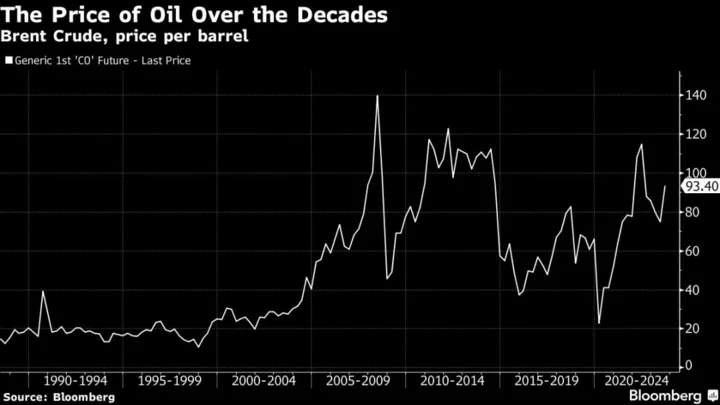
Hedge Fund Manager Jampel Stops Shorting Fossil Fuel Stocks
A hedge fund manager who made a name for himself shorting fossil fuel stocks says the strategy is
1970-01-01 08:00
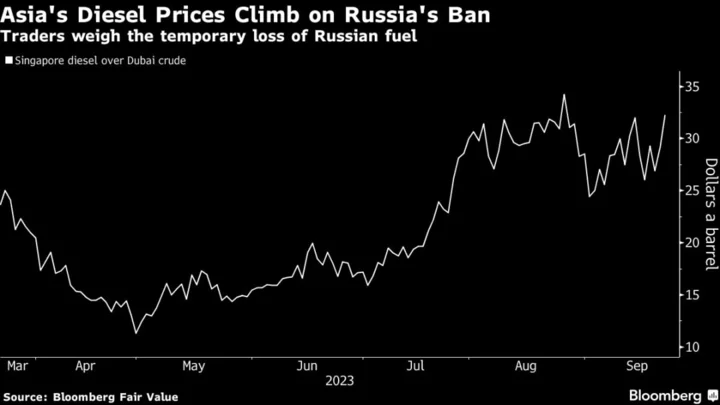
Russia’s Diesel Ban Lifts Asian Prices With Traders on Alert
Asian diesel prices climbed after Russia’s surprise export ban, even as a host of market watchers said the
1970-01-01 08:00
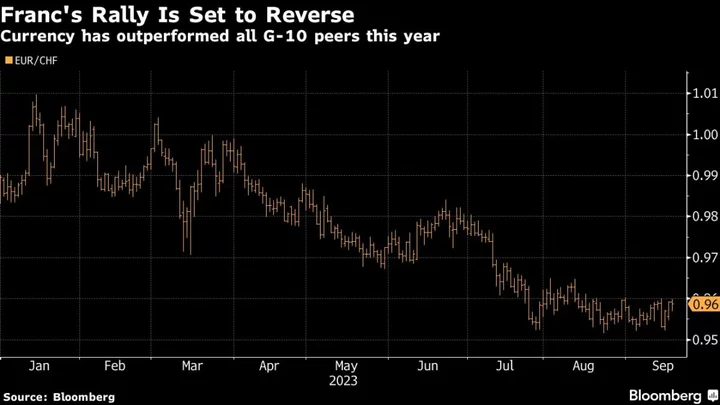
Franc’s Fading Rally Fuels Carry Trade Talk With Rates on Pause
The Swiss National Bank’s decision to halt monetary tightening has capped the franc’s rally and rekindled talk about
1970-01-01 08:00
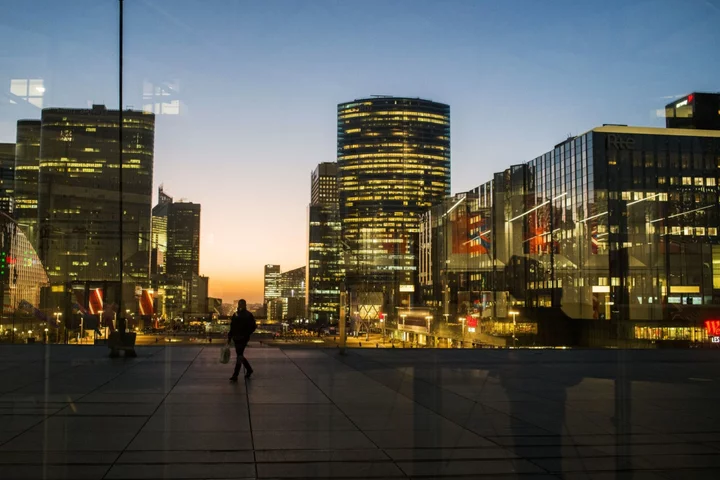
Keensight Capital Raises $3 Billion for Growth Buyouts
European private equity firm Keensight Capital said it has raised €2.8 billion ($3 billion) to invest in technology
1970-01-01 08:00
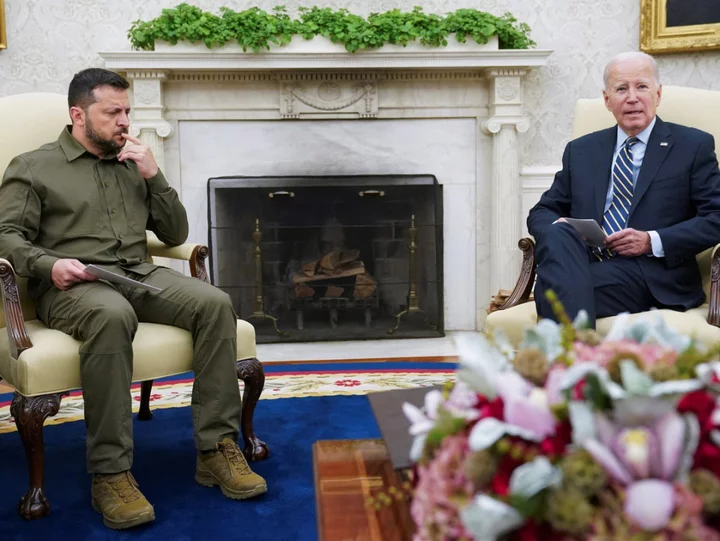
Ukraine-Russia war - live: Biden’s $325m package for Zelensky as Pentagon says Abram tanks ‘on schedule’
Joe Biden has announced a new $325m military aid package for Ukraine that will include air defence systems and other weaponry to help Kyiv face a tough winter, White House national security adviser Jake Sullivan said. The announcement came as he met Volodymyr Zelensky at the White House after the Ukrainian leader had what he said were “frank” conversations with members of Congress over future support. This comes as the Pentagon announced “everything is on schedule” after being asked about the timing of the top-tier Abram tanks in the war zone for Ukraine. “For security reasons, I’m not going to be able to go into specifics in terms of when the tanks will arrive, other than to say that we expect them to arrive in Ukraine in the coming days and weeks,” Pentagon spokesperson brigadier general Patrick Ryder said in his briefing with reporters. Earlier, experts said Russian military chiefs had ordered troops to carry out “ill-conceived and unsupported” counterattacks in Bakhmut to urgently regain lost ground. One military blogger reportedly observed that “hysterical” counterattacks were depleting Russian resources and reserves. Read More Biden pledges more support for Ukraine’s defence as he announces new arms package President Zelensky and Ukraine’s First Lady arrive at White House Zelensky says he had ‘very strong dialogue with senators’ after closed-door meeting over Ukraine aid
1970-01-01 08:00
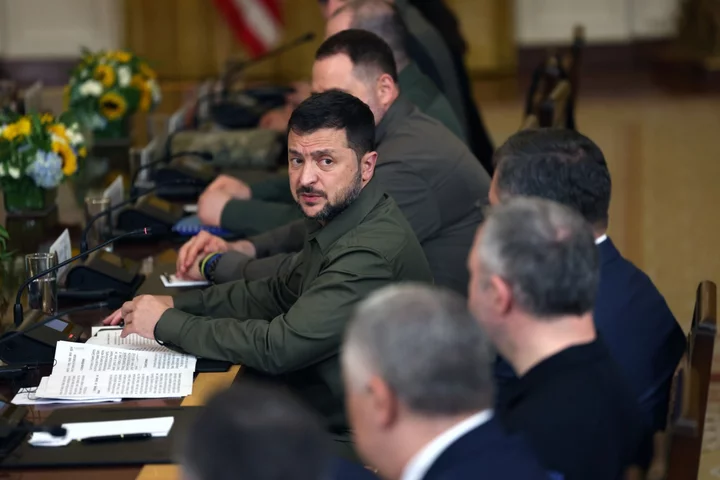
Ukraine’s Zelenskiy Vows to Keep on Fighting in Autumn, Winter
Ukraine will continue its counteroffensive through the autumn and into the winter, President Volodymyr Zelenskiy said, vowing to
1970-01-01 08:00
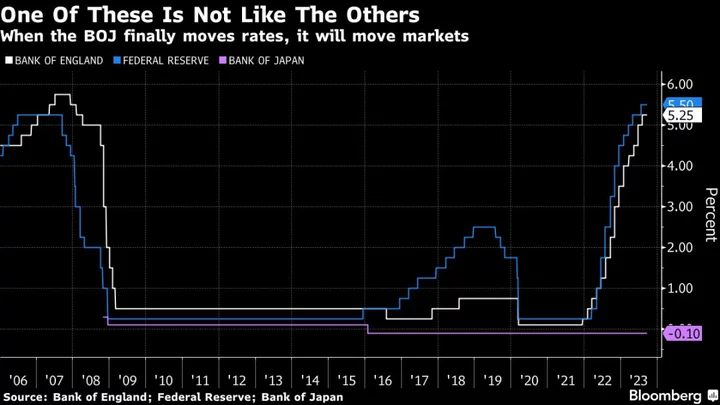
Asia Stocks to Follow US Losses With Focus on BOJ: Markets Wrap
Equity markets in Asia are poised to open lower after US stocks suffered the biggest slump in six
1970-01-01 08:00
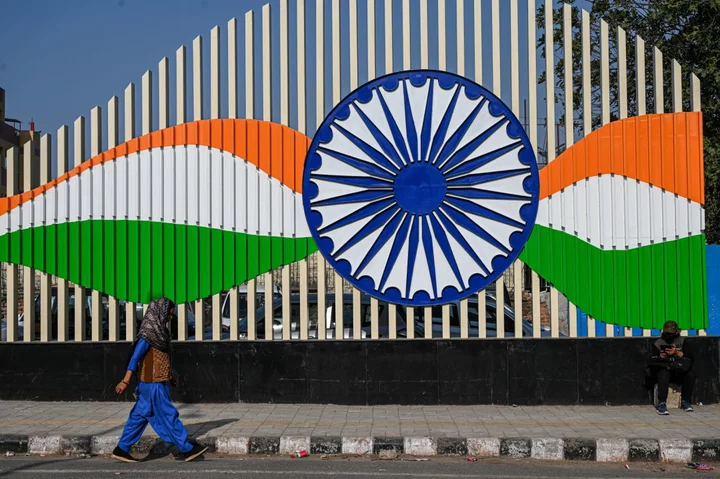
India May Keep Door Shut on Crypto for Two Years, Key Local Exchange Says
A shift by India to a less onerous crypto tax regime may be two years away, according to
1970-01-01 08:00
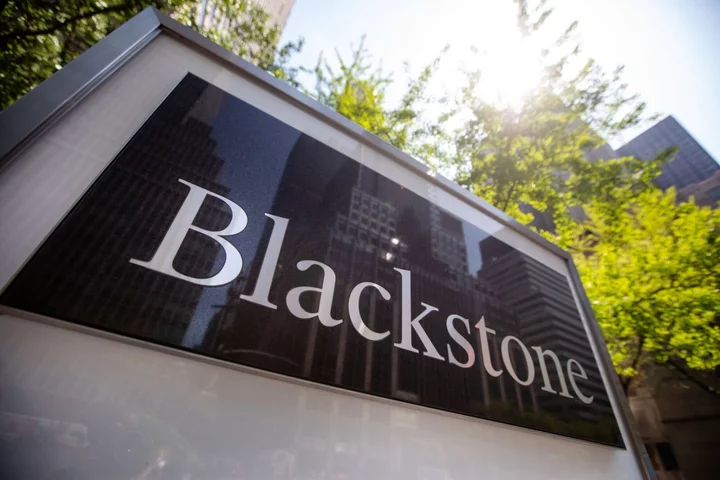
Blackstone, Permira Explore Bid for eBay-Backed Adevinta
European classifieds company Adevinta ASA said it has received a takeover proposal from a private equity consortium that
1970-01-01 08:00
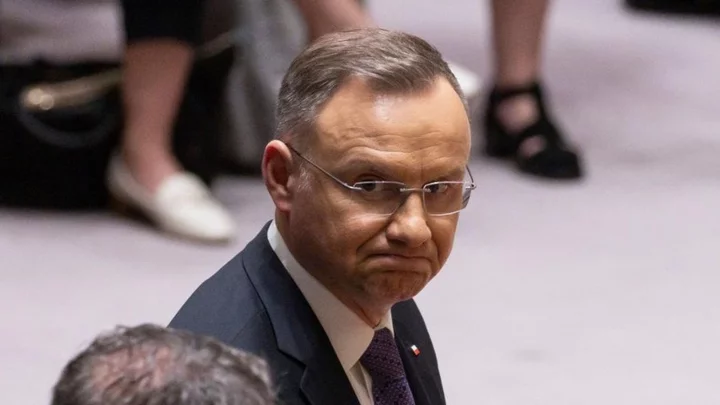
A shadow of 'Ukraine fatigue' hangs over Polish politics
With an election looming, politicians are grappling with how to support Ukraine and prioritise national interests.
1970-01-01 08:00

‘Food is running out’: Warning of humanitarian crisis in Nagorno-Karabakh as no deal reached in talks
Talks between a breakaway Armenian republic and Azerbaijan over the future of the wartorn region of Nagorno-Karabakh closed on Thursday without a final agreement, amid accusations Baku’s forces violated a ceasefire. A tense truce has been in place since Azerbaijan’s army claimed full control over the area after launching a lightning offensive against local Armenian forces on Tuesday. Residents of the Karabakh’s main city told The Independent that shelling and gunfire rang through the suburbs on Thursday morning. They added that a “humanitarian catastrophe” was unfolding as electricity had been completely cut off, food was running out and thousands of displaced civilians were hiding in shelters. Azerbaijani officials on Thursday agreed to provide humanitarian aid, including energy to heat kindergartens and schools, a statement from Azerbaijan president Ilham Aliyev’s office said. Meanwhile Mr Aliyev declared victory in a televised address to the nation, saying his country had restored its sovereignty over Nagorno-Karabakh. The Independent was unable to verify who was behind the attacks, which came amid talks to hammer out an agreement ahead of a United Nations Security Council meeting on the violence. Karabakh’s Armenian authorities blamed the assault on Azerbaijani forces. Baku’s defence ministry called the allegations it had broken the truce “completely false”. Thursday’s meeting held in the Azerbaijani town of Yevlakh ended in no firm deal. David Babayan, an adviser to Nagorno-Karabah’s ethnic Armenian leader Samvel Shahramanyan, told Reuters that while there was an agreement over the cessation of military action “we await a final agreement, talks are going on”. He said that there were not enough security guarantees in place to mean that local Armenian forces would give up their weapons. “A whole host of questions still need to be resolved,” he said. Both sides have been locked in a bloody battle over the mountainous Nagorno-Karabakh region, also known as Artsakh by Armenians, since the 1990s following the collapse of the Soviet Union. It is internationally recognised as part of Azerbaijan – which is backed by Turkey – but home to 120,000 ethnic Armenians who have enjoyed de facto independence. In 2020, a six-week war erupted which left 6,700 people dead and saw Azerbaijan reclaim about a third of the region. Russia, historically a close ally of Armenia that has long seen itself as a security guarantee in the South Caucuses, brokered a truce and dispatched 2,000 peacekeepers. That was broken on Tuesday by the Azerbaijan army that unleashed a fresh wave of artillery and drone strikes against the outnumbered and undersupplied pro-Armenian forces, raising concerns that a full-scale war could resume. The fighting worsened an already burgeoning humanitarian crisis for residents who have endured nine months of food, electricity and medicine shortages. This is due to Azerbaijan’s blockade of the “Lachin Corridor”, the road connecting Nagorno-Karabakh to Armenia. Nagorno-Karabakh human rights ombudsman Gegham Stepanyan said at least 200 people, including 10 civilians, were killed. The figures could not immediately be independently verified. Facing mounting pressure, local Armenian self-defence forces agreed on Wednesday to disarm and disband. The UN Security Council scheduled an urgent meeting on Thursday on the Azerbaijani offensive at the request of France. French president Emmanuel Macron condemned Azerbaijan’s decision to use force “at the risk of worsening the humanitarian crisis in Nagorno-Karabakh”. US secretary of state Antony Blinken denounced Baku’s use of military force saying that these actions “undermine prospects for peace: and were ‘unacceptable’”. Residents of the main city Stepanakert, which Azerbaijan calls Khankendi, said thousands of civilians had fled rural areas to the city centre and were now living in shelters without electricity and scant food supplies. “It’s unimaginably hard here. People can’t find food, we have over 10,000 people evacuated from villages, there are children, the elderly and missing people,” said Siranush Sargsyan, a freelance Armenian journalist in the city. “This morning we heard shooting and shelling, panicking the neighbourhood. People started to run,” she continued, adding that the biggest concern now was “staying alive and finding missing relatives”. She said network connection had been bad because of the lack of electricity meaning that many people were unaccounted for. “For the last three days, we haven’t had any electricity at all.” Gev Iskajyan, executive director of ANC, an Armenian lobbying group in the US, went as far as to say Thursday was “the final stage of Artsakh’s ethnic cleansing”. Also speaking from Stepanakert he said he feared a “mass exodus of people” from their homes. “We need to create mechanisms that would ensure the safe movement of the ethnic Armenians from Artsakh to Armenia,” he added. It’s unimaginably hard here. People can’t find food, we have over 10000 evacuees Siranush Sargsyan, journalist in Nagorno-Karabakh Sheila Paylan, an international human rights lawyer and former adviser to the UN, said the situation “couldn’t be more dangerous for the Armenians”. “The international obligation to intervene is [needed] now more than ever. There should be a possibility of international sanctions against Azerbaijan to change this condemnable behaviour,” she added. Restoring control over the war-ravaged region has been a key goal for Mr Aliyev, who on Wednesday said Azerbaijan had triumphed with an “iron fist”. “After the surrender of the criminal junta, this source of tension, this den of poison, has already been consigned to history,” Mr Aliyev said, focusing his anger on Karabakh’s leadership. He said the region’s ethnic Armenians would enjoy full educational, cultural and religious rights. All ethnic groups and faiths would be united as “one fist – for Azerbaijan, for dignity, for the motherland”. It has been a damning blow to the separatist Karabakh leadership and for Armenia, which helped Armenians in the enclave and fought two wars with Azerbaijan in the space of 30 years. Armenia’s foreign ministry condemned Azerbaijan’s military operation saying it was part of a “policy of ethnic cleansing”. Armenian prime minister Nikol Pashinyan later said that Armenians were going through “untold physical and psychological suffering”. Baku has faced mounting criticism from the international community for turning to force. Mr Macron, who spoke to Mr Aliyev on Wednesday, said the fighting compromised ongoing efforts to achieve “fair and lasting peace”. He stressed the need to respect the ceasefire and provide guarantees for “the rights and security of the people of Karabakh, in line with international law”. Protesters rallied in the Armenian capital of Yerevan for a third day on Thursday, demanding that authorities defend Armenians in Nagorno-Karabakh. The Russian foreign ministry has called for an “immediate halt to the bloodshed”. Read More Stones thrown as Armenian protesters clash with police after ceasefire Talks have opened on the future of Nagorno-Karabakh as Azerbaijan claims full control of the region Azerbaijan hails end of Armenian separatists’ advance in Nagorno-Karabakh Talks have opened on the future of Nagorno-Karabakh as Azerbaijan claims full control of the region Putin says Russia peacekeepers ‘doing everything’ to protect civilians as Azerbaijan claims full control of Nagorno-Karabakh Stones thrown as Armenian protesters clash with police after ceasefire Azerbaijan hails end of Armenian separatists’ advance in Nagorno-Karabakh UNGA Briefing: Permanent observers, more Security Council and what else is going on at the UN
1970-01-01 08:00
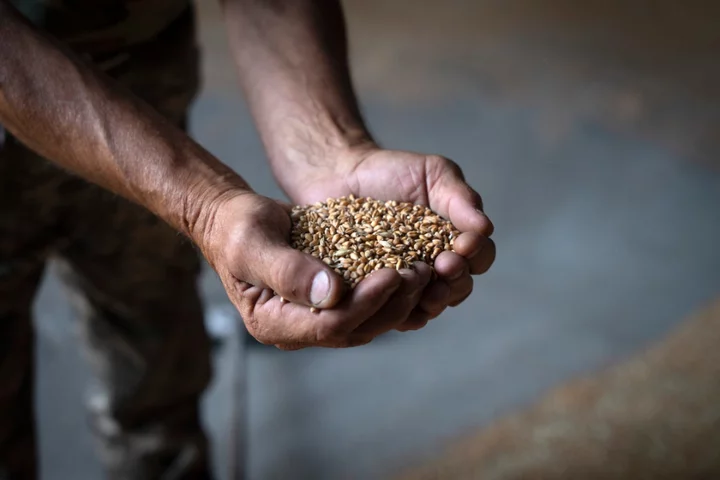
Poland stops sending arms to Ukraine as row over grain imports escalates
Poland said it will stop exporting weapons to Ukraine as a week of escalating tensions between the two countries reached boiling point over a ban on grain imports. Prime minister Mateusz Morawiecki said he would instead be investing the money in arming Poland, which has been one of Ukraine’s staunchest allies since Russia invaded last year, with the most “modern weapons”. The row between the neighbouring countries began last week when Poland imposed an import ban on Ukrainian grain, including wheat and maize, after an EU-brokered deal expired. The deal, which ended on 15 September, allowed Poland, Bulgaria, Romania, Hungary and Slovakia to ban the sale of Ukrainian grain, which they claim has flooded the European market and undercut domestic grain prices since Putin’s invasion, damaging their economies. But Ukraine launched a legal challenge at the World Trade Organisation (WTO) on Monday after Poland reinstated the ban, claiming the country had failed to meet its “international obligations”. Days after, Mr Zelensky told the United Nations General Assembly that “some friends in Europe” were feigning solidarity by indirectly supporting Russia by banning the sale of its grain. Poland then summoned the Ukrainian ambassador to its foreign ministry to protest against Mr Zelensky’s comments. Hours later, Warsaw announced it would no longer be supplying weapons to Ukraine. “We are no longer transferring weapons to Ukraine, because we are now arming Poland with more modern weapons,” the prime minister said. While the country claimed Ukrainian authorities “do not understand” the extent to which Poland’s farming industry has been “destabilised”, one expert claimed Poland was “losing its nerve”. “Poland is losing its nerve. It seems people are starting to get tired of the war, because there has been no breakthrough, there are corruption scandals, and Ukrainian grain imports are damaging the economy,” Dr Marina Miron, post doctoral researcher at King’s College London war studies department, told The Independent. She explained Poland’s upcoming general election on 15 October was crucial in explaining the ban. In recent weeks, Poland’s Law and Justice party has stepped up its rhetoric supporting farmers in recent weeks. “Poland is in its pre-election stage and needs to ensure domestic support,” Dr Miron added. However, Poland’s state assets minister Jacek Sasin claimed the row over grain imports did not mean Poland head ceased to back Ukraine against Russia. “At the moment it is as the prime minister said, in the future we will see. In this case, Polish interests come first,” he said. “We cannot disarm the Polish army, we cannot get rid of the weapons that are necessary for our security.” “Where we could arrange for the transfer of weapons, we did it and we were very generous in this matter. Here we have absolutely nothing to reproach ourselves with.” Poland has previously sent 320 Soviet-era tanks and 14 MiG-29 fighter jets to the war-torn country. Mr Morawiecki also issued a warning to Kyiv, saying that if they “escalate the conflict”, additional products will be added to the list of banned imports. He said: “I am warning Ukraine’s authorities. Because if they are to escalate the conflict like that, we will add additional products to the ban on imports into Poland.” Poland’s decision has been criticised around the world. Donald Tusk, a top EU opposition leader, accused Morawiecki and other ruling authorities of a “moral and geopolitical scandal of stabbing Ukraine in the back politically when they decide to fight on the Ukrainian front, just because it will be profitable for their campaign.” Michal Baranowski, security and defence expert, added: “The message is very bad, both for Poland’s reputation but also because Poland has been one of the chief advocates of military aid to Ukraine. Saying Poland will not be sending more weapons means that Poland can no longer play this role.” Read More Why has Poland stopped supplying weapons to Ukraine? Ukraine-Russia war - live: Major blow for Kyiv as Poland cuts off weapons and issues warning to Zelensky Zelensky accuses ‘some friends in Europe’ of playing into Russia’s hands
1970-01-01 08:00
